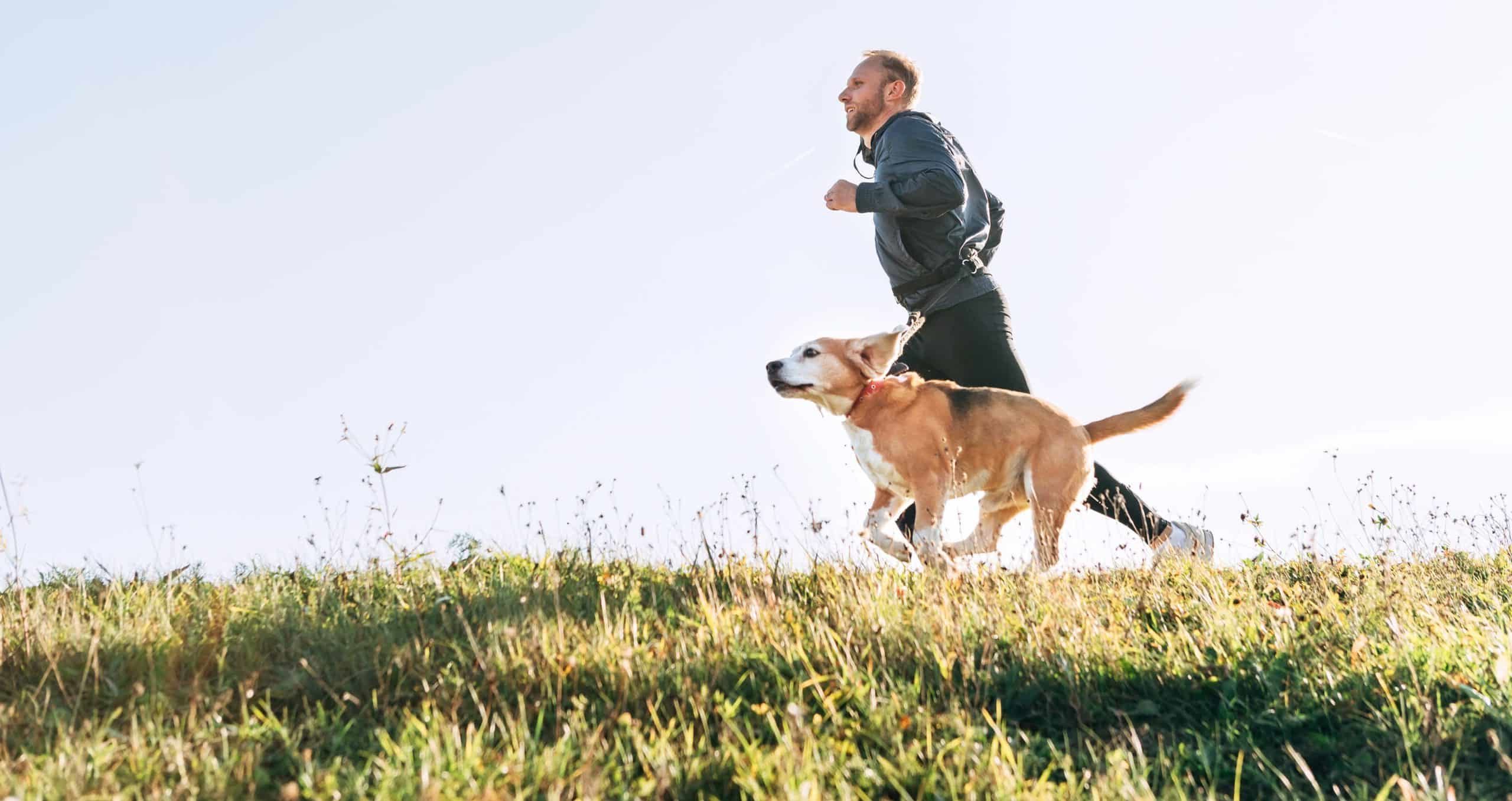Joint health tip: Running with your dog

Conditions such as arthritis and hip dysplasia can be aggravated by high-impact activity, so here’s four things you need to bear in mind before hitting the track together.
Talk to your vet
It’s always a good idea to see your vet before starting a running regime with your pet. Together, you can make sure your dog is in good shape before starting out, and avoid problems later on. Your dog’s weight is one of the factors your vet will consider, as paunchy pooches will need to trim down to a healthy weight through gentle exercise and proper diet before they begin. This helps avoid considerable and unnecessary strain on the joints.
Age Limits
As a general rule, young dogs and very old dogs aren’t cut out for high-impact exercises like running. If you have a pup, you’ll have to wait until they’re at least a year old to give their bones and muscles time to mature. Until this time, running – especially long-distance running – can cause serious musculoskeletal problems in later life. If, on the other hand, your dog is starting to feel its age, it’s best to consult your vet for advice as factors that may prevent your dog from running safely vary widely between breeds and individuals.
Breed matters
Although most dogs love to run, not all are cut out for long distances. Some gundogs, scent hounds and herding dogs – such as the Siberian Husky, Hungarian Vizsla, Rhodesian Ridgeback, Weimaraner, German Short Hair Pointer and English Setter – are capable of running half-marathon distance. Other popular breeds, such the Labrador Retriever, German Shepherd, Border Collie and Australian Cattle dogs, suit 10kms or less.
Pooches most comfortable with a walk around the block include Bassett Hounds, Dachshunds and dogs that have a tendency to overheat, such as Pugs and Bulldogs.
Assisted recovery
It’s important for your dog’s bone, joint and muscle health to rest and recover between runs. This means a few days off every week in between workouts. You may also wish to consider a good joint health treatment, like 4CYTE™ for Dogs, to actively maintain joint health.